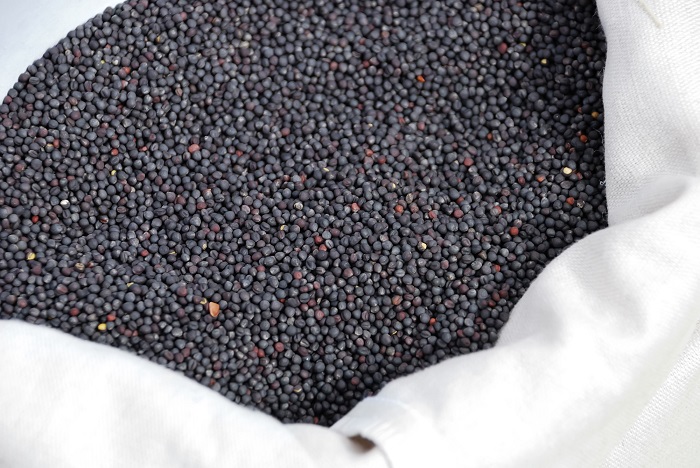Geopolitical risks and their impact on the export of rapeseed from Ukraine

Ukraine has long been a significant player in the global agricultural market, with its fertile soil and favorable climate supporting a variety of crops. Among these, rapeseed has emerged as a crucial export commodity, contributing significantly to the country’s economy. However, the export of rapeseed from Ukraine is not without its challenges. Geopolitical risks, in particular, pose substantial threats to this vital industry. This article delves into the complexities of these risks and their impact on the rapeseed export sector.
The Importance of Rapeseed Export from Ukraine
Rapeseed, also known as canola, is a versatile crop used for producing oil, animal feed, and biodiesel. Ukraine’s geographic position, combined with its extensive agricultural infrastructure, makes it one of the top producers of rapeseed in the world. The European Union, China, and India are primary importers of Ukrainian rapeseed, relying on this steady supply to meet their own domestic demands.
The export of rapeseed plays a critical role in Ukraine’s economy, providing a source of income for farmers and contributing to the national GDP. In recent years, rapeseed export has shown considerable growth, driven by increasing global demand and Ukraine’s competitive pricing.
Geopolitical Risks Affecting Rapeseed Export
- Conflict and Political Instability
The most significant geopolitical risk facing Ukraine is the ongoing conflict with Russia, particularly in regions such as Donetsk and Luhansk. These areas, although not the primary agricultural hubs, still impact the overall stability of the country. Political instability can lead to disruptions in transportation, affect the availability of labor, and create uncertainties that deter international buyers.
- Trade Policies and Sanctions
Geopolitical tensions often result in trade policies and sanctions that can hinder the export of agricultural products. For instance, sanctions imposed by Western countries on Russia, and vice versa, have indirect effects on Ukraine. These sanctions can lead to increased scrutiny and barriers for Ukrainian exports, including rapeseed, as the country navigates its complex relationships with both Western and Eastern blocs.
- Market Access and Export Routes
The routes through which rapeseed is exported are crucial. Geopolitical conflicts can disrupt these routes, making it challenging to get the product to market. The annexation of Crimea by Russia in 2014, for instance, significantly altered shipping routes in the Black Sea, complicating export logistics for Ukrainian goods.
- Global Market Fluctuations
Geopolitical events can cause fluctuations in global markets, affecting commodity prices. For example, trade wars or diplomatic standoffs can lead to volatility in the prices of rapeseed oil and related products. Ukrainian exporters must navigate these fluctuations, which can impact profitability and market stability.
Mitigation Strategies for Geopolitical Risks
To mitigate these risks, Ukrainian rapeseed exporters and the government can adopt several strategies:
- Diversification of Export Markets
By expanding the range of export destinations beyond the EU, China, and India, Ukraine can reduce its dependency on any single market. Exploring markets in Africa, the Middle East, and Southeast Asia can provide alternative outlets for rapeseed exports.
- Investment in Infrastructure
Improving transportation and storage infrastructure can enhance the resilience of the rapeseed export supply chain. Investments in modern ports, railways, and highways can help ensure that exports reach their destinations efficiently, even amidst geopolitical turmoil.
- Strengthening Trade Alliances
Forming strong trade alliances and agreements with other countries can provide a buffer against geopolitical risks. These alliances can help secure market access and provide mutual support in times of crisis.
- Adopting Advanced Agricultural Practices
Investing in advanced agricultural practices and technologies can improve the yield and quality of rapeseed, making Ukrainian exports more competitive. Enhanced productivity can offset some of the challenges posed by geopolitical risks.
Conclusion
The export of rapeseed from Ukraine is a vital component of the country’s agricultural sector and economy. However, geopolitical risks pose significant challenges that can disrupt this important industry. By understanding these risks and implementing strategic measures, Ukraine can safeguard its rapeseed export market, ensuring continued growth and stability in the face of global uncertainties.
In conclusion, while geopolitical risks are a formidable challenge, they also present an opportunity for Ukraine to innovate and strengthen its position in the global agricultural market. The resilience and adaptability of Ukrainian rapeseed exporters will be crucial in navigating the complexities of the geopolitical landscape, securing a prosperous future for this essential crop.
